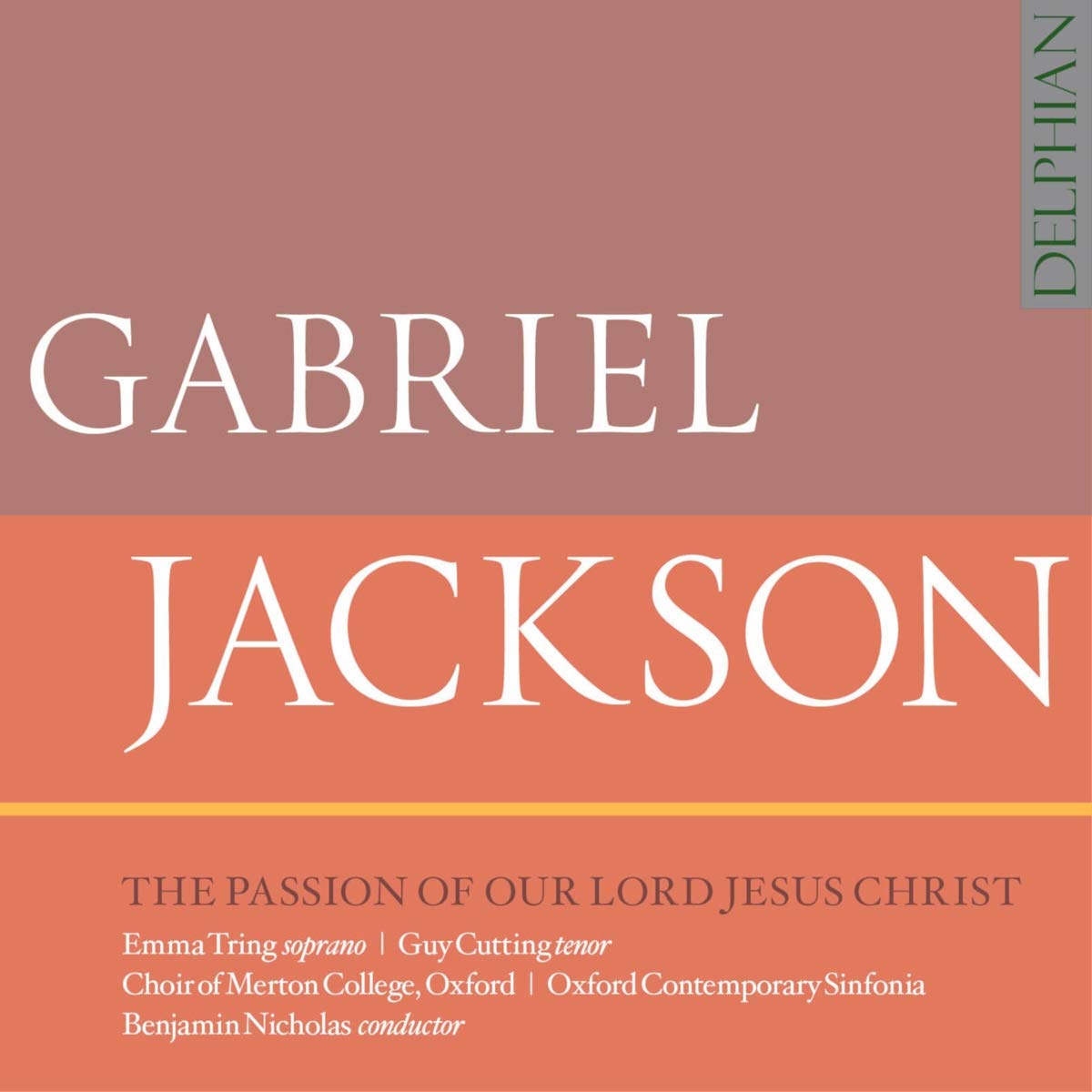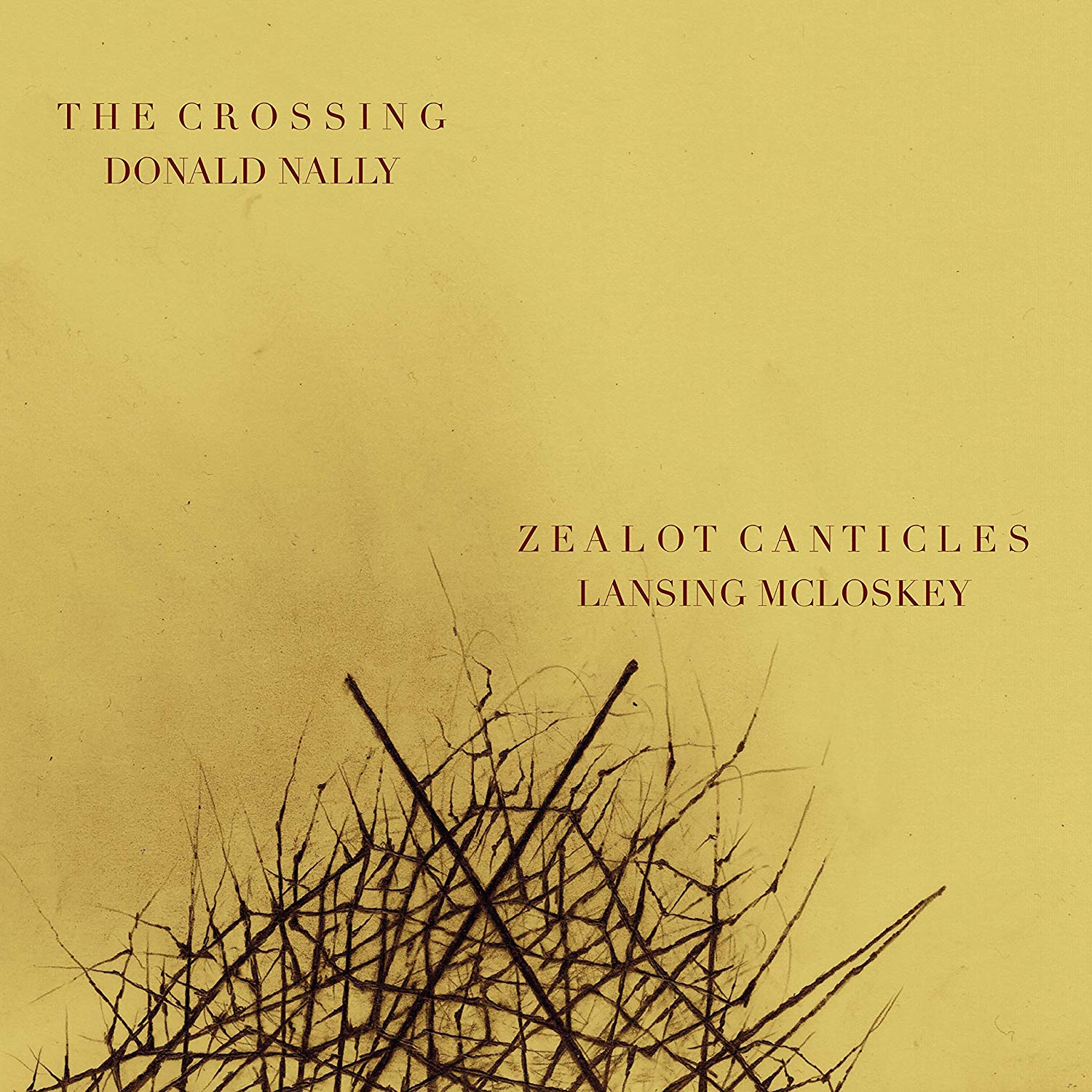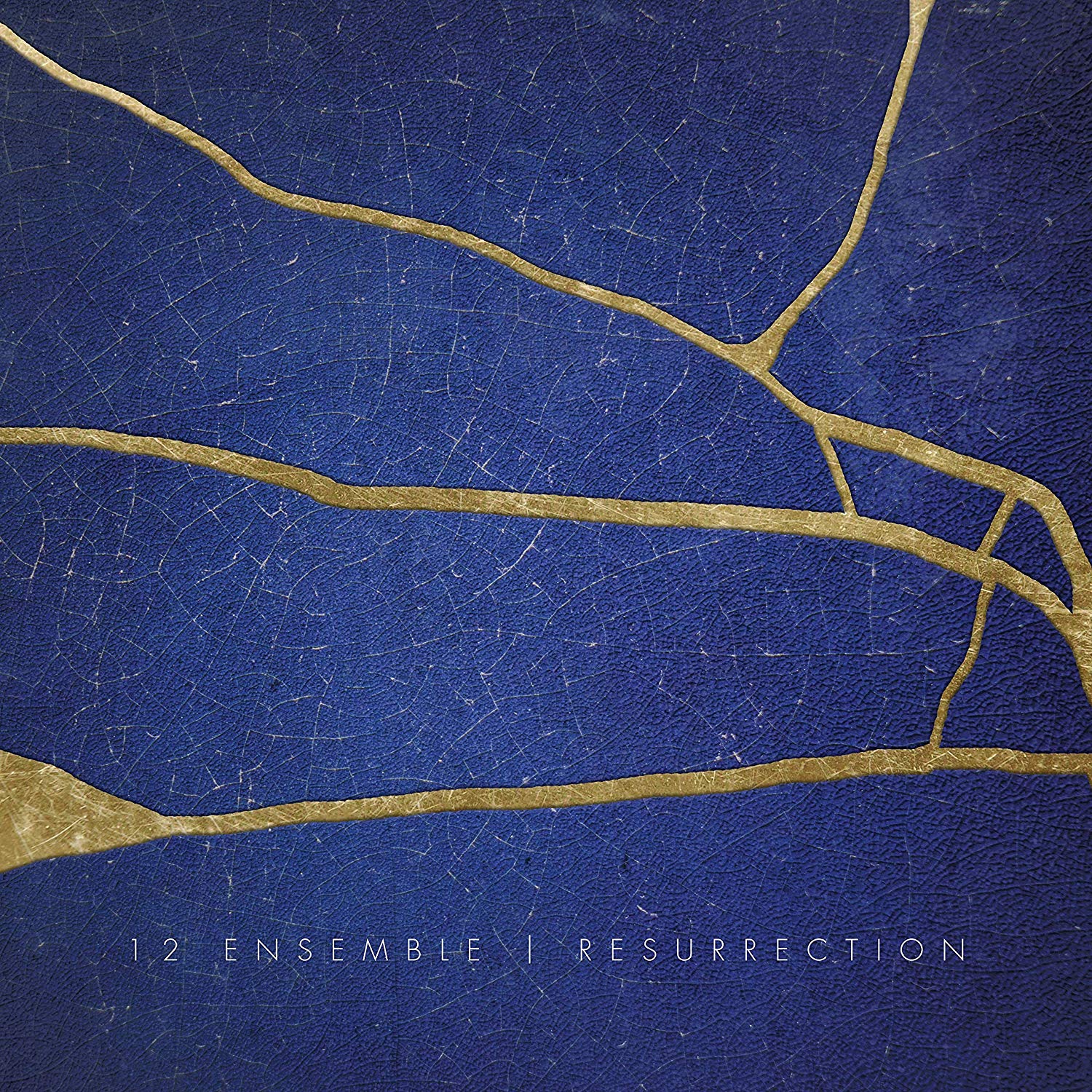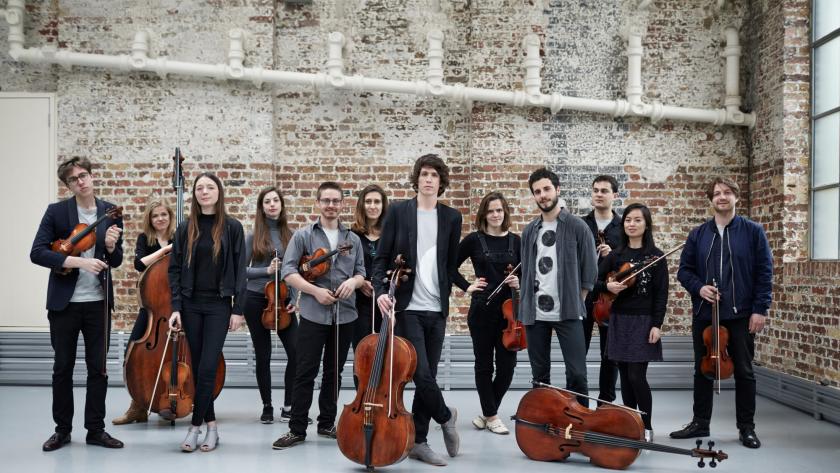 Gabriel Jackson: The Passion of our Lord Jesus Christ Emma Tring (soprano), Guy Cutting (tenor), Choir of Merton College Oxford, Oxford Contemporary Sinfonia/Benjamin Nicholas (Delphian)
Gabriel Jackson: The Passion of our Lord Jesus Christ Emma Tring (soprano), Guy Cutting (tenor), Choir of Merton College Oxford, Oxford Contemporary Sinfonia/Benjamin Nicholas (Delphian)
This Passion sets a libretto compiled by the Chaplain of Merton College, Simon Jones. He draws on each of the four Gospel accounts and adds to them poetry ancient and modern, each poet having a connection with the college. Bach’s surviving Passion settings are epic schleps, whereas Gabriel Jackson’s vibrant new one is in just seven sections and lasts 70 minutes. This is an unabashedly diatonic, very singable work, one which would take a hard heart not to love. Me, I was smitten three or so minutes in, tenor Samuel Costello's “Tell ye the daughter of Sion…” ringing out over sustained string chords and a chirruping soprano saxophone. The interplay between choir, tenor and instrumentalists is brilliantly handled.
Jackson’s theatricality is one of his greatest strengths. You wonder why he hasn’t written an opera. Take his “Crucifixion”, which effortlessly switches between choral narration, subtle percussion and an exquisite, bluesy Latin hymn sung by soprano Emma Tring. It's as if a zoom lens is being deployed, helped by unobtrusively spectacular engineering: this is among the best-sounding choral recordings I've heard. And Jackson’s tale of “an innocent man betrayed, tortured and brutally executed” ends, unexpectedly, with the last of T S Eliot’s Four Quartets, Eliot’s “And all shall be well” reflected in music of unassuming, gentle radiance. Benjamin Nicholas’s Merton College Choir sing with plenty of, er, passion, aided by sharp accompaniments. Brilliant – purchase forthwith.
 Lansing McLoskey: Zealot Canticles, on writings of Wole Soyinka The Crossing/Donald Nally (Innova Recordings)
Lansing McLoskey: Zealot Canticles, on writings of Wole Soyinka The Crossing/Donald Nally (Innova Recordings)
Zealot Canticles sets texts taken from Nigerian author Wole Soyinka’s Twelve Canticles for the Zealot, interspersed with excerpts from various plays, lectures, speeches and interviews. Composer Lansing McLoskey compares the madness of the religious fanatics in the verses to the delirium experienced by Soyinka when on hunger strike during his imprisonment in the late 1960s. Musically and lyrically, Zealot Canticles is powerful stuff, an angry, impassioned plea for tolerance and understanding. Soyinka's poems deride those “Perched on church steeple, minaret, cupola/Smug as misericords, gleeful as gargoyles,” and a later verse mocks clerics who swear they’ll rid the streets of unbelievers, “armed with Book and Beard,” the author comparing present day terrors with the religious tolerance he experienced when younger.
McLoskey’s score is fascinating in its eclecticism: a gorgeous baritone aria like “I intend to be blunt” is followed by “I shall ram pebbles in my mouth”, roared out by unison mens’ voices. At the end of the work we're left exhausted, the final number warning us to look out for “the latest, smirking, unctuous face of Power”. Words which carry more of a charge when we learn that McLoskey wrote the work “during the most distressing US presidential campaign in modern history,” and that the last movement coincided with the 2016 election. Donald Nally’s crack chamber choir The Crossing do a phenomenal job, along with an impressive team of instrumentalists – clarinettist Doris Hall-Gulati deserves a shout out. This disc recently, and deservedly, won a Grammy. It's magnificent, and shouldn't just appeal to Guardian reading types like me. Stretch your ears and snap up a copy.
 12 Ensemble: Resurrection (Sancho Panza)
12 Ensemble: Resurrection (Sancho Panza)
Lutosławski’s Musique Funèbre is an early work, a 1958 string orchestra tribute to the memory of Bartók. Bartók’s folk-inspired modernism was always rooted in tonality, however uncompromising the results. Lutosławski’s tribute is dodecaphonic but as vividly expressive as anything by the older composer. There are intensely singable themes in this work, notably the violin melody which steals in a few seconds into the second section. Lutosławski was a master of thematic development, and what ensues is gripping. We feel as if we’re about to get thrilling, affirmative apotheosis. Instead there’s a series of screeching, Herrmann-esque chords before the slow winding down. It's a terrific little piece, and this chamber scale reading by the 12 Ensemble packs a huge punch, more agile and sharper edged than performances from full string sections. That they're a conductorless dodectet makes the achievement all the more impressive.
It's aptly coupled with the first recording of Bryce Dessner’s affecting Réponse Lutosławski, each of its five short movements inspired by the Musique Funèbre. It ends similarly softly, though the mood is consolatory rather than bleak. Kate Whitley’s Autumn Songs takes inspiration from a Verlaine poem, Whitley comparing the flurries of descending notes to falling leaves. John Woolrich’s Ulysses Awakes is a brilliant reimagining of an aria from Monteverdi’s opera, the vocal line beautifully played by violist Simon Rowland-Jones. The melody remains intact, though Woolrich “coaxes the work into a modern light” by tinkering with the string accompaniment, updating the original just enough. An outstanding disc, handsomely recorded.














Add comment